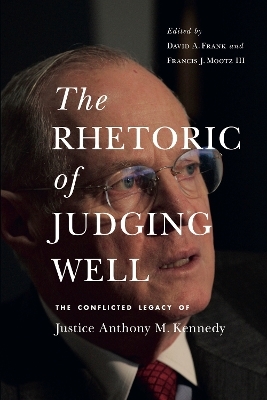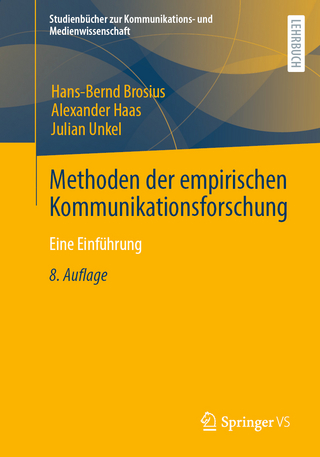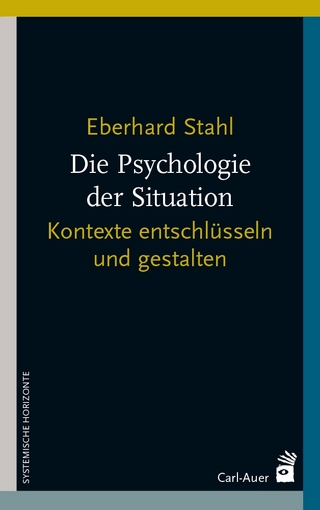
The Rhetoric of Judging Well
Pennsylvania State University Press (Verlag)
978-0-271-09485-4 (ISBN)
- Noch nicht erschienen (ca. Februar 2025)
- Versandkostenfrei innerhalb Deutschlands
- Auch auf Rechnung
- Verfügbarkeit in der Filiale vor Ort prüfen
- Artikel merken
This book examines Justice Kennedy’s legacy through the lenses of rhetoric, linguistics, and constitutional law. Essays analyze Kennedy’s opinion writing in landmark cases such as Romer v. Evans, Obergefell v. Hodges, and Planned Parenthood v. Casey. Using the Justice’s rhetoric as an entry point into his legal philosophy, this volume reveals Kennedy as a justice with contradictions and blind spots—especially on race, women’s rights, and immigration—but also as a man of empathy deeply committed to American citizenship.
A sophisticated assessment of Justice Kennedy’s jurisprudence, this book provides new insight into Kennedy’s legacy on the Court and into the role that rhetoric plays in judging and in communicating judgment.
In addition to the editors, the contributors to this volume are Ashutosh Bhagwat, Elizabeth C. Britt, Martin Camper, Michael Gagarin, James A. Gardner, Eugene Garver, Leslie Gielow Jacobs, Sean Patrick O’Rourke, Susan E. Provenzano, Clarke Rountree, Leticia M. Saucedo, Darien Shanske, Kathryn Stanchi, and Rebecca E. Zietlow.
David A. Frank is Professor of Rhetoric at the University of Oregon. He is the coauthor of numerous books, including most recently Frames of Evil: The Holocaust as Horror in American Film. Francis J. Mootz III is Professor of Law at the University of the Pacific. He is the author of Law, Hermeneutics and Rhetoric and Rhetorical Knowledge in Legal Practice and Critical Legal Theory.
Acknowledgements
Introduction
Part 1. Judgment in Classical Rhetoric
1. Justice Kennedy and the Interpretation of Legal Texts: The Classical Background
Michael Gagarin
2. Sex and Moral Pollution in the Rhetoric of Justice Kennedy
Eugene Garver
Part 2. Judgment in Stasis Theory
3. Justice Kennedy’s Definitional Construction of Gay Rights in Lawrence and Obergefell: Legal Rhetorical Analysis with the Interpretive Stases
Martin Camper
4. Justice Kennedy, Natural Liberty, and Classical Stasis Theory: Advancing Free Speech with Rhetorical Knowledge and Interpretive Argumentation
Susan E. Provenzano
5. Romer v. Evans: Justice Kennedy, Justice Scalia, and the Rhetoric of Judging Well
Sean Patrick O’Rourke
Part 3. Judgment in Contemporary Rhetorical Theory
6. Constructing a Free Agent: “Good Judgment” in Justice Kennedy’s Lawrence v. Texas Opinion
Clarke Rountree
7. Justice Kennedy and Natural Law Argumentation
Francis J. Mootz III
8. Justice Kennedy, Federalism, and the Nonproduction of Rhetorical Knowledge
Darien Shanske
Part 4. Judgment and Justice Kennedy’s Ethos
9. Justice Kennedy’s Free Speech Optimism
Ashutosh Bhagwat
10. Strongmen and Neurotics: Visible Struggle and the Construction of Judicial Ethos
James A. Gardner
11. The Anticlassification Topic and Equal-Liberty Template
Leslie Gielow Jacobs
Part 5. Justice Kennedy’s Misjudgments: Women, Race, and Immigrants
12. Performing a “View from Nowhere”: Justice Kennedy’s Denial of Embodied Knowledge
Elizabeth C. Britt
13. Women in Justice Kennedy’s Jurisprudence
Kathryn Stanchi
14. Justice Kennedy’s Anticlassification Doctrine: Not Judging Well
Rebecca E. Zietlow
15. Whose Freedom? Justice Kennedy’s Sovereignty, Autonomy, and Liberty Discourses in the Immigration Cases
Leticia M. Saucedo
Part 6. Assessment
16. Rhetorical Vision and Judgment: Did Justice Anthony M. Kennedy Judge Well?
David A. Frank
List of Contributors
Index of Cases
Index of Names and Subjects
| Erscheint lt. Verlag | 18.2.2025 |
|---|---|
| Reihe/Serie | Rhetoric and Democratic Deliberation |
| Verlagsort | University Park |
| Sprache | englisch |
| Maße | 152 x 229 mm |
| Gewicht | 511 g |
| Themenwelt | Recht / Steuern ► Allgemeines / Lexika |
| Recht / Steuern ► EU / Internationales Recht | |
| Sozialwissenschaften ► Kommunikation / Medien ► Kommunikationswissenschaft | |
| ISBN-10 | 0-271-09485-0 / 0271094850 |
| ISBN-13 | 978-0-271-09485-4 / 9780271094854 |
| Zustand | Neuware |
| Informationen gemäß Produktsicherheitsverordnung (GPSR) | |
| Haben Sie eine Frage zum Produkt? |
aus dem Bereich


